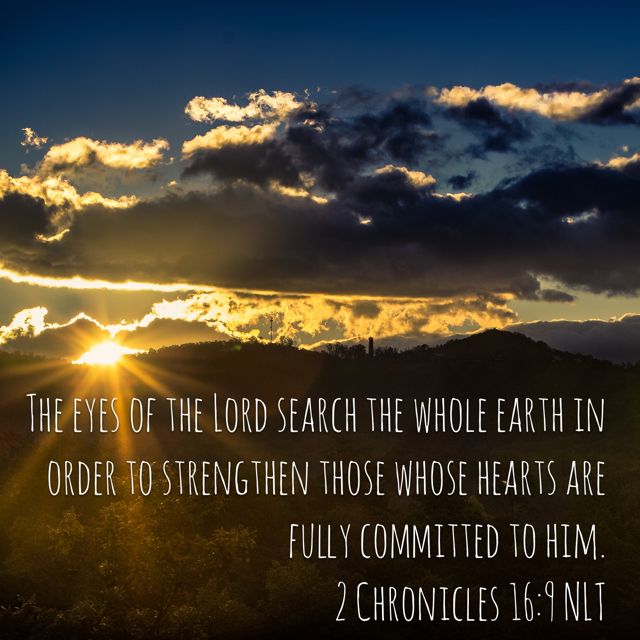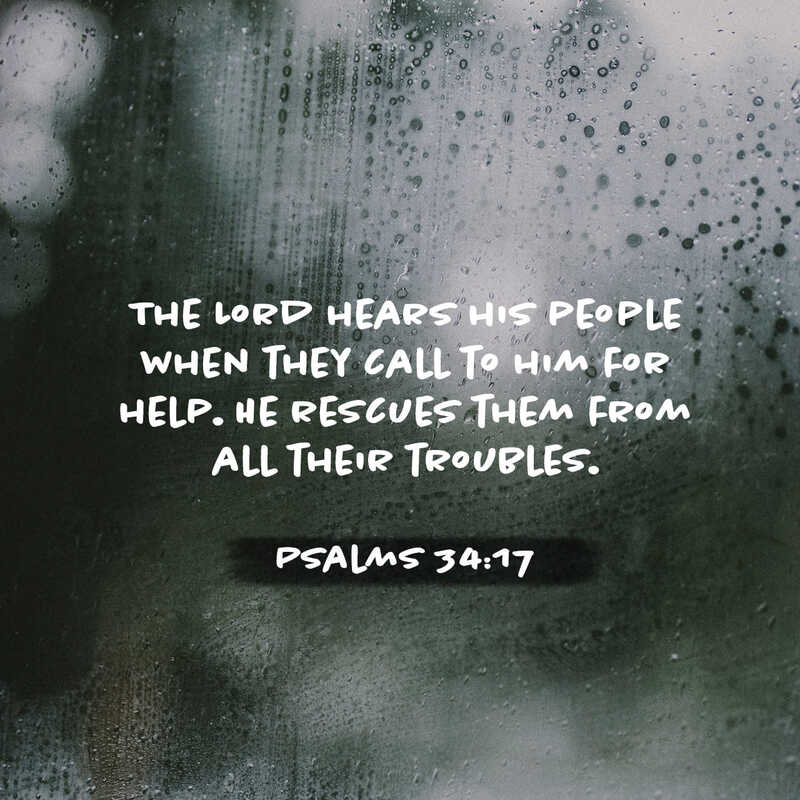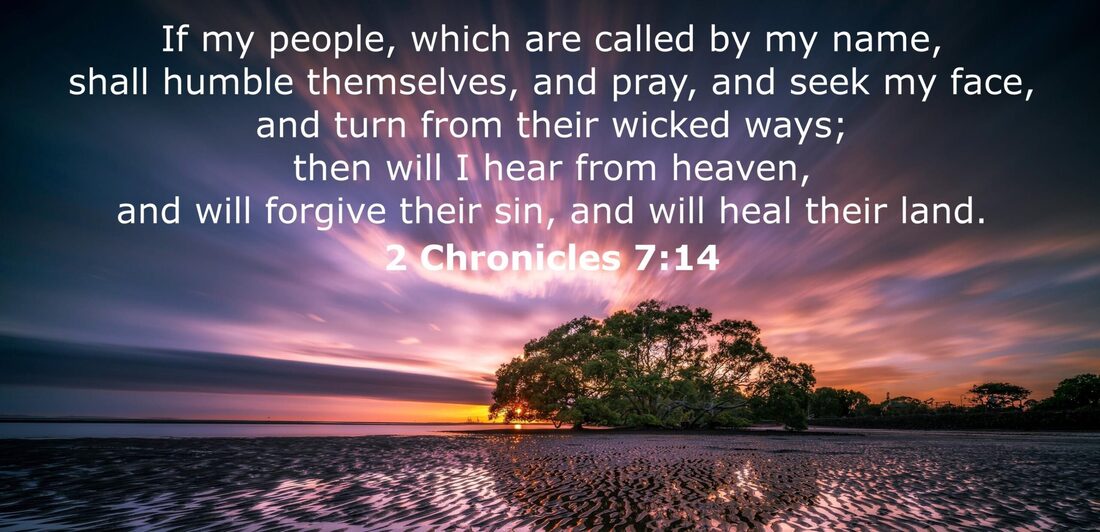my name
humble themselves, and pray and seek my face and turn from their wicked ways, then I will hear from heaven and will
forgive their sin and heal their land”
(2 Chronicles 7:14, ESV).
The key to understanding any verse of Scripture is context.
There is the immediate context—the verses before and after it, as well as the larger context of Scripture--how the verse fits into the overall story. There is also the historical and cultural context—how the verse was understood by its original audience in light of their history and culture.
Because context is so important,
a verse whose meaning and application seem straightforward
when quoted in isolation
may mean something significantly different
when it is taken in context.
When approaching 2 Chronicles 7:14, one must first consider the immediate context. After Solomon dedicated the temple, the Lord appeared to him and gave him some warnings and reassurances. “The Lord appeared to him at night and said: ‘I have heard your prayer and have chosen this place for myself as a temple for sacrifices.’ When I shut up the heavens so that there is no rain, or command locusts to devour the land or send a plague among my people, if my people, who are called by my name, will humble themselves and pray and seek my face and turn from their wicked ways, then I will hear from heaven, and I will forgive their sin and will heal their land” (2 Chronicles 7:12–14).
The immediate context of 2 Chronicles 7:14 shows that the verse is tied up with Israel and the temple and the fact that from time to time God might send judgment upon the land in the form of drought, locusts, or pestilence.
A few verses later God says this: “But if you turn away and forsake the decrees and commands I have given you and go off to serve other gods and worship them, then I will uproot Israel from my land, which I have given them, and will reject this temple I have consecrated for my Name. I will make it a byword and an object of ridicule among all peoples. This temple will become a heap of rubble. All who pass by will be appalled and say, ‘Why has the Lord done such a thing to this land and to this temple?’ People will answer, ‘Because they have forsaken the Lord, the God of their ancestors, who brought them out of Egypt, and have embraced other gods, worshiping and serving them—that is why he brought all this disaster on them’” (2 Chronicles 7:19–22).
No doubt Solomon would have recognized this warning as a reiteration of Deuteronomy 28. God had entered into a covenant with Israel and promised to take care of them and cause them to prosper as long as they obeyed Him. He also promised to bring curses upon them if they failed to obey. Because of the covenant relationship, there was a direct correspondence between their obedience and their prosperity, and their disobedience and their hardship. Deuteronomy 28 spells out the blessings for obedience and the curses for disobedience. Again, divine blessing and divine punishment on Israel were conditional on their obedience or disobedience.
We see this blessing and cursing under the Law play out in the book of Judges. Judges chapter 2 is often referred to as “The Cycle of the Judges.” Israel would fall into sin. God would send another nation to judge them. Israel would repent and call upon the Lord. The Lord would raise up a judge to deliver them. They would serve the Lord for a while and then fall back into sin again. And the cycle would continue.
In 2 Chronicles 7, the Lord simply reminds Solomon of the previous agreement. If Israel obeys, they will be blessed. If they disobey, they will be judged. The judgment is meant to bring Israel to repentance, and God assures Solomon that, if they will be humble, pray, and repent, then God will deliver them from the judgment.
In context, 2 Chronicles 7:14 is a promise to ancient Israel (and perhaps even modern-day Israel) that, if they will repent and return to the Lord, He will rescue them. However, many Christians in the United States have taken this verse as a rallying cry for America. (Perhaps Christians in other countries have done so as well.) In this interpretation, Christians are the people who are called by God’s name. If Christians will humble themselves, pray, seek God’s face, and repent, then God will heal their land—often a moral and political healing is in view as well as economic healing. The question is whether or not this is a proper interpretation/application.
The first problem that the modern-day, “Westernized” interpretation encounters is that the United States does not have the same covenant relationship with God that ancient Israel enjoyed. The covenant with Israel was unique and exclusive. The terms that applied to Israel simply did not apply to any other nation, and it is improper for these terms to be co-opted and applied to a different nation.
Some might object that Christians are still called by God’s name and in some ways have inherited the covenant with Israel—and this may be true to some extent. Certainly, if a nation is in trouble, a prayerful and repentant response by Christians in that nation is always appropriate. However, there is another issue that is often overlooked.
When ancient Israel repented and sought the Lord,
they were doing so en masse.
The nation as a whole repented.
Obviously, not every single Israelite repented and prayed,
but still it was national repentance.
There was never any indication that a small minority of the nation (a righteous remnant) could repent and pray and that the fate of the entire nation would change. God promised deliverance when the entire nation repented.
When 2 Chronicles 7:14 is applied to Christians in the U.S. or any other modern nation, it is usually with the understanding that the Christians in that nation—the true believers in Jesus Christ who have been born again by the Spirit of God—will comprise the righteous remnant.
God never promised that if a righteous remnant repents and prays for their nation, that the nation will be saved.
Perhaps if national repentance occurred, then God would spare a modern nation as He spared Nineveh at the preaching of Jonah (see Jonah 3)—but that is a different issue.
Having said that, it is never wrong to confess our sins and pray--
in fact, it is our duty as believers to continuously
confess and forsake our sins so that they will not hinder us
(Hebrews 12:1)
and to pray for our nation and those in authority
(1 Timothy 2:1–2).
It may be that God in His grace will bless our nation as a result—but there is no guarantee of national deliverance.
Even if God did use our efforts to bring about
national repentance and revival,
there is no guarantee that the nation
would be politically or economically saved.
As believers, we are guaranteed personal salvation in Christ
(Romans 8:1),
and we are also guaranteed that God will use us
to accomplish His purposes, whatever they may be.
It is our duty as believers to live holy lives, seek God, pray,
and share the gospel knowing
that all who believe will be saved,
but the Bible does not guarantee the
political, cultural, or economic salvation of our nation.
https://youtu.be/Uaw8aqI3FXU




 RSS Feed
RSS Feed
























































